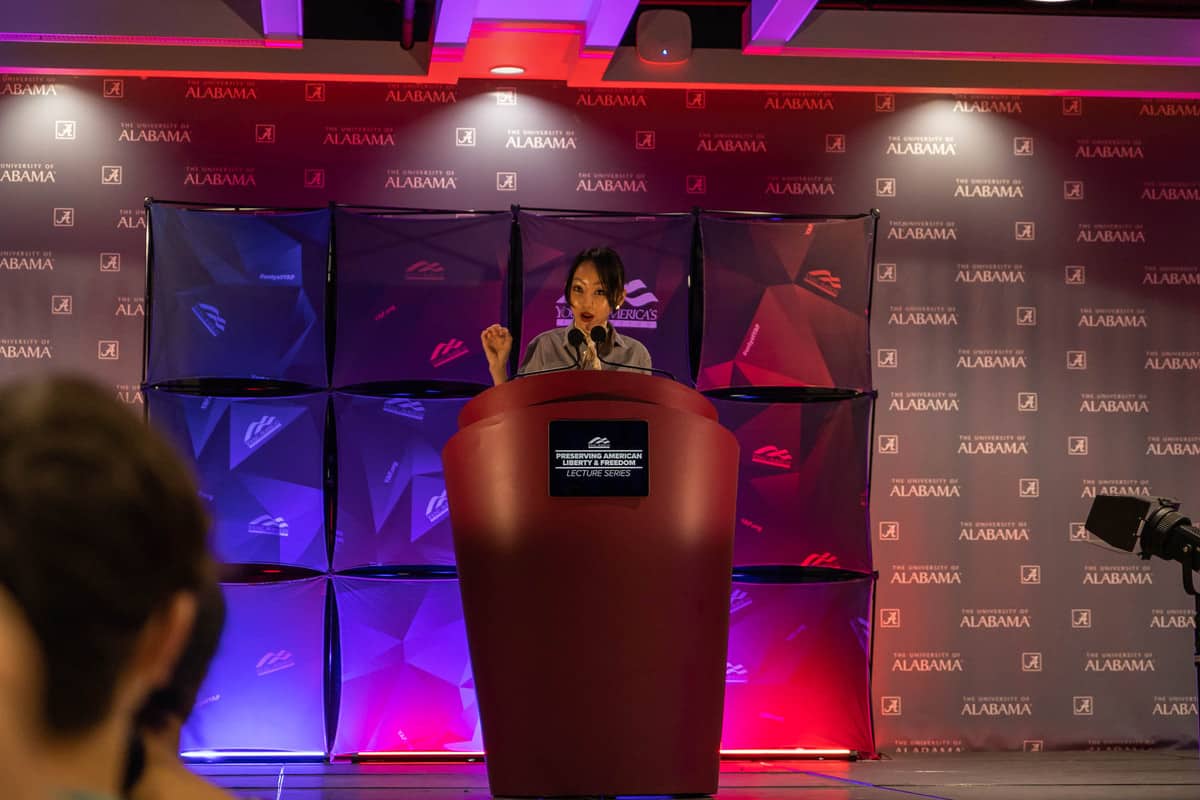The UA chapter of Young Americans for Freedom, a conservative student organization, hosted speaker Yeonmi Park, a North Korean defector and conservative activist, on Tuesday.
Park was at the Student Center to give a speech and answer questions from the audience “to expose the lord of communism,” according to the event’s description.
Park was born in North Korea in 1993 under Kim Il Sung; in 2007, Park fled from North Korea to China, where South Korean missionaries helped her escape to South Korea.
Park came to the United States in 2016 to write her first book and enroll at Columbia University in New York. She now speaks at a variety of venues, including college campuses, to talk about her background and provide commentary on current events.
During her speech, Park said that current cultural dynamics in the U.S. have parallels with the division of North Korea into classes.
“There’s a certain ideology in America trying to divide American people based on their skin color,” Park said. “If your skin color is not white, you’re oppressed. Based on what your ancestors did, you’re going into a different class in America right now.”
During the Q&A, Park was asked about laws and regulations in America that she felt were similar to those in North Korea. Her response mentioned affirmative action.
“So many people think it’s not about your merit or your competence,” Park said. “Let’s make these people doctors because of their skin color,” she added, describing the position of those who support affirmative action.
Park referred to both affirmative action and the foundation of North Korea as “anti-merit.”
Connor Meadows, a freshman majoring in anthropology, disagreed with much of Park’s speech.
“I was really skeptical of her messaging, especially with the recent Senate bill,” Meadows said. “I thought her comparison between the ‘equity’ propaganda of North Korea and the legitimate attempts at American universities to make campuses a more friendly and welcoming place very unsubstantiated.”
Christian Calvert, president of UA YAF, said the organization invited Park because members thought she had an interesting story.
“We thought her take on equity was insightful,” Calvert said. “Especially with the Alabama state Senate voting on a bill concerning that coming up.”
Calvert said those in attendance might favor equality instead of equity after hearing Park speak.
Parks was criticized in a Washington Post article for alleged discrepancies in her stories. According to the article, while on a reality show, she discussed her family’s wealth in North Korea, but after the publication of her first book, she began depicting her life in North Korea more negatively, discussing the poverty she and her family allegedly experienced.
One student asked how Park dealt with her mental health. Park replied that she feels there’s a lot of harm in therapy.
“In a way, not everything you feel is true,” Park said. “This is a culture where we keep telling people how you feel is the most important thing in the whole world.”
Park said the culture of validation in feelings can produce a generation of people who think feelings are more important than the truth.
“There’s people that are gender fluid,” Park said. “In one second I feel like a girl, the other I feel like a boy. Literally how you feel determines the actual truth around you.”









